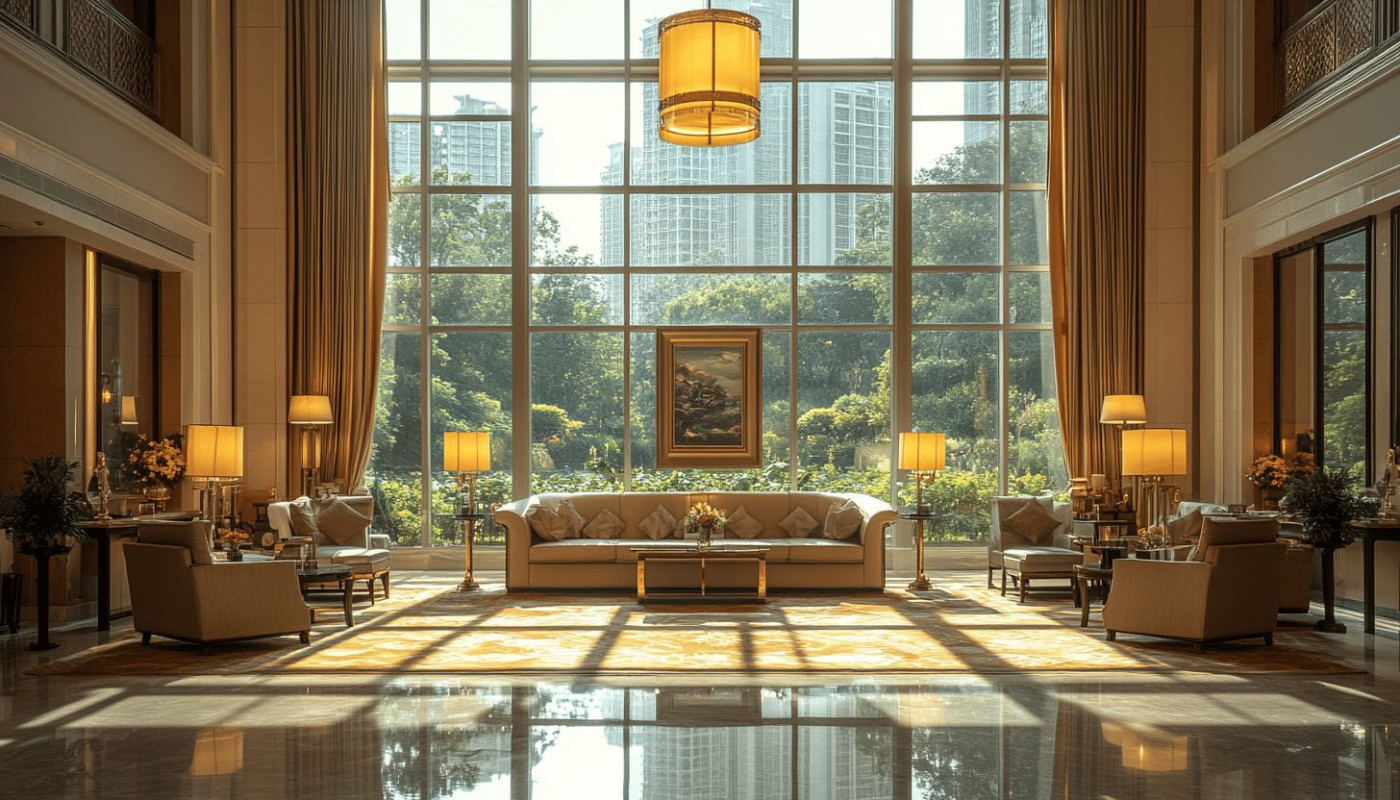Table of contents
Luxury travelers are redefining expectations within the hospitality industry, prompting brands to rethink traditional marketing strategies. This article explores how to align marketing efforts with the unique preferences and behaviors of high-end guests. Delve deeper to uncover actionable insights and emerging trends that will set luxury hospitality experiences apart in a competitive market.
Understanding luxury traveler profiles
The luxury market has witnessed a transformation in traveler segmentation due to shifting demographics and sophisticated purchasing behaviors among modern high-end guests. While traditional luxury travelers often belonged to older, affluent generations, recent hospitality analytics reveal a surge in younger, experience-driven demographics with diverse backgrounds. In-depth analysis of traveler psychographics—a technical term referring to the study of personality, values, attitudes, interests, and lifestyles—shows that luxury guests today prioritize personalization, authenticity, and exclusivity over standardized opulence. Hospitality organizations now leverage data-driven personas, combining demographic information with intricate psychographic insights, to create highly targeted personalization strategies. By employing predictive analytics, brands can identify emerging trends in guest behavior and adapt offerings to meet heightened expectations for bespoke experiences. These approaches allow a refined understanding of the luxury market, enabling companies to anticipate needs, foster loyalty, and deliver exceptional value to discerning travelers.
Elevating the personalized experience
Creating a truly personalized hospitality environment has become a nonnegotiable for those aiming to capture the attention of modern luxury travelers. From the initial point of contact, pre-arrival communication sets the tone, allowing properties to gather preferences and anticipate needs. This process continues seamlessly during the stay, where guest journey mapping—a method that visualizes every step a traveler takes from booking to departure—enables the property to deliver tailored touchpoints that delight at every stage. When customer relationship management (CRM) integration and comprehensive guest data systems are utilized, it becomes possible to track and interpret guest behaviors, preferences, and past interactions. These insights empower teams to exceed expectations and predict desires, transforming standard service into a memorable luxury guest experience.
Loyalty initiatives play a pivotal role in fostering long-term relationships by recognizing and rewarding distinguished guests with exclusive privileges, early access to amenities, or curated local experiences. By leveraging advanced CRM systems, properties can automate personalized offers and recommendations, ensuring each interaction feels uniquely crafted for the individual. The result is a cohesive customer journey that extends beyond the property itself; with thoughtful post-stay follow-up, guests feel remembered and valued, increasing the likelihood of repeat visits and positive referrals. Personalized hospitality, supported by precise guest journey mapping, thus becomes the hallmark of any competitive luxury brand.
In today's data-driven landscape, integrating guest preferences across all touchpoints is not just a luxury—it is an expectation for discerning travelers. Strategic CRM integration is the engine driving this transformation, enabling staff to access a comprehensive guest profile in real time and respond proactively. For luxury brands, investing in these technologies and methodologies translates to an elevated guest journey and heightened brand loyalty, ensuring that every traveler receives service that is as distinctive as their tastes. Hospitality operators who master these approaches position themselves as leaders in the evolving world of luxury guest experience.
Incorporating immersive technology solutions
Luxury travelers today expect more than conventional amenities; they seek unforgettable experiences enabled by immersive technology and personalized service. Integrating virtual hospitality innovations such as virtual reality tours allows guests to visually explore suites, spas, or destination highlights before arrival, creating anticipation and emotional engagement. Smart room controls provide seamless convenience, enabling guests to customize lighting, temperature, and entertainment using voice or app interfaces. AI concierge platforms further elevate the guest journey by providing instant, intuitive assistance for everything from restaurant reservations to local recommendations, tailored to individual preferences. These advancements exemplify immersive experience design, a technical approach focused on crafting multi-sensory environments that blur the line between digital and physical realities, making each stay uniquely memorable.
Implementing these luxury innovations comes with challenges such as integrating systems across legacy infrastructure, ensuring data privacy, and providing staff training to maintain the human touch essential in luxury service. Leading practices involve phased rollouts, robust cybersecurity protocols, and ongoing feedback loops to refine solutions based on guest behavior and satisfaction. Hospitality leaders often draw inspiration across markets, as seen with the digital-first strategies adopted by specialized agencies like chinese tourist agency, which leverages technology to engage high-value travelers. Embracing immersive technology and meticulous immersive experience design is becoming a hallmark for properties committed to exceeding the demands of sophisticated guests.
Promoting exclusivity and authenticity
Luxury travel trends increasingly point to the desire for exclusive experiences that combine both intimacy and distinction, making it vital for hospitality brands to embrace experiential branding—the strategy of crafting memorable, immersive moments that resonate emotionally with guests, reflecting the core values and identity of the brand. Storytelling forms the backbone of this approach, weaving narratives around unique offerings and the history or spirit of a destination, giving guests a deeper sense of connection. Authentic hospitality becomes tangible when marketing communicates not only high-end amenities but also curated experiences such as private tours, chef-led tastings, or access to hidden gems typically reserved for locals. These elements foster a heightened sense of belonging and prestige, which discerning travelers eagerly seek.
To excel in this arena, a foremost luxury hospitality marketing strategist recommends integrating local culture and sustainable practices into every touchpoint of a campaign, ensuring that each message underscores a commitment to cultural immersion and environmental responsibility. Highlighting bespoke offerings—such as collaborations with local artisans or personalized itineraries—invites travelers to engage in meaningful ways with their surroundings. By blending these elements, hospitality brands position themselves at the forefront of authentic hospitality, meeting the evolving expectations of luxury travelers who value not just comfort and service, but also genuine connection and purposeful travel. Embedding these strategies in communication helps distinguish a property in a crowded marketplace, attracting guests who wish to invest in both memorable moments and mindful experiences.
Leveraging data for continuous improvement
In luxury hospitality, data-driven marketing has become a fundamental approach to maintaining a competitive edge and exceeding guest expectations. By leveraging real-time data collection methods—from website tracking to mobile app interactions—hotels can monitor guest behavior and tailor marketing efforts with unmatched precision. Performance analytics tools measure the effectiveness of campaigns, allowing for accurate ROI measurement and the swift adjustment of strategies that may not be delivering optimal results. Guest feedback, gathered through detailed post-stay surveys, social media monitoring, and direct digital communication, offers actionable insights into evolving preferences and satisfaction levels. Integrating these findings, marketing teams can refine messaging, personalize promotional offers, and develop new services that resonate with the desires of sophisticated travelers.
Anticipating traveler preferences requires embracing advanced techniques such as predictive analytics, a method that uses historical and real-time data to forecast future behaviors and trends. By analyzing patterns in booking windows, amenity usage, and even sentiment analysis from guest communications, luxury hospitality brands adapt rapidly to emerging luxury hospitality trends. This proactive approach enables the identification of opportunities for upselling or the early detection of shifts in market demand, ensuring that marketing initiatives are always one step ahead. In sum, continuous improvement through data-driven decision-making empowers businesses to deliver personalized experiences, maximize ROI, and solidify their reputation among discerning luxury travelers.



